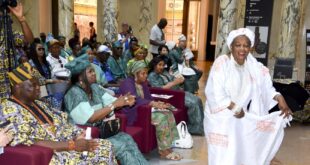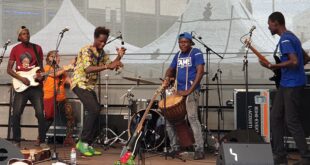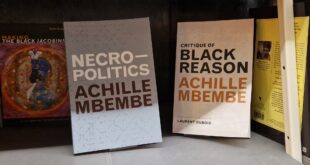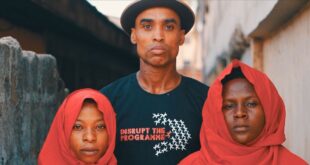2016 commemorates the 35th anniversary of Bob Marley’s death. Perhaps no other musician has had such a profound impact on how we see the world and our place in it as Marley, who died on 11 May 1981. He infused powerful social messages – of unity and strength in the face of oppression – in his music. German reggae enthusiast and journalist Valentin Zill remembers the iconic ‘political’ musician and answers the critics of the Marley family.
When Robert Nesta Marley was born in Nine Miles, Jamaica, in February 1945, his mother, Cedella Marley, could not have had any reason to expect too much for his life. Although Cedella’s family was by no means impoverished, there was simply not that much one could have expected to achieve in the Jamaican countryside. At the time Bob Marley died in 1981, half the world shed tears. And 35 years on, the first superstar from a so-called Third World country still stands out as one of the most influential singers ever.
The road Marley had to take to become an icon was rough and rocky. At the age of 12 he moved to Kingston, where he soon found himself working on tunes on a homemade guitar with his friend Neville O’Riley Livingston, who would later, under the name of Bunny Wailer, rise to world fame with him in the Wailing Wailers.
In 1962, Bob recorded his first three singles for Jamaican-Chinese producer Leslie Kong, including Judge Not and One Cup of Coffee. Kong paid him a flat five pounds and turned Marley down when he asked for more afterwards. Needless to say, this would not be the only rip-off Marley had to experience.
If you have nothing to lose, as Chris Salewicz rightly observed in his seminal book Bob Marley. The Untold Story, you have no fear of expressing your God-given talents. Bob certainly did not have that fear. He soon created a group with some of his Trench Town friends, including Peter Tosh and Bunny Wailer. Suffering in the ghetto, they named themselves the Wailers.

Clemens “Coxsone” Dodd, arguably Jamaica’s most influential producer ever, offered them a badly paid recording contract. It would take a while for their music to catch on, but the most important ingredient was already there. “We felt we were the only ones who could express the people’s feelings through music, and because of that the people loved it,” explained Peter Tosh. Once they were successful in Jamaica, going international seemed like the obvious next step. By that time, all the Wailers had embraced the Rastafari faith.
Peter and Bunny had been witnesses of Ethiopian Emperor Haile Selassie’s visit to Kingston, a historic moment that turned out to be life-changing for many who witnessed it. Some of the musicians who recorded with Bob Marley did not want him to take reggae music, which started to get attached to the Rasta faith, to international stages. Drummer Leroy “Horsemouth” Wallace (who came to international fame himself later by playing the lead in Theodoros Bafaloukos’s
seminal 1978 reggae movie Rockers) was among those around Bob who opposed him for his international aspirations. “Rasta, reggae music should never leave Jamaica.” Horsemouth deeply regrets his point of view later, admitting that he did not see Marley’s vision at that time.
Instead of listening to some of his friends, Bob – with the Wailers – embarked on his first full international tour in 1973 which led him through England and the US to promote their Catch A Fire album. From that point it went uphill, even when Bunny Wailer and Peter Tosh left the group shortly after to pursue their solo careers. On his last tour through Europe in 1980, Bob Marley attracted a larger audience than any other artist at that time, breaking festival records.
When Bob Marley died on 11May 1981 of cancer, which had been diagnosed in July 1977, he left behind a devastated family, friends and millions of fans. In his short life he had managed to put Jamaica on the music world map, carry the message of Rastafari around the globe and plant the seeds of roots reggae more or less all over the world. His music has influenced not only most reggae artists but also superstars of various genres including the Rolling Stones, Eric Clapton, Carlos Santana, U2, The Fugees and Nneka. His albums continue to sell.
TIME magazine named Marley’s Exodus album of the century in 1999. The BBC went even further and chose his anthem One Love as song of the millennium.
Bob Marley bears the UN Peace Medal of the Third World and the Jamaican Order of Merit. In 2001, he was posthumously awarded the Grammy Lifetime Achievement Award. He has a star on the Hollywood Walk of Fame, and his wax figure can be found at Madame Tussaud’s in London.
Much more interesting for his fans, though, is how his family continues his musical legacy. His wife, Rita, and five of his numerous children – Ziggy, Stephen, Julian, Ky-Mani and Damian – earn money as professional singers. Combined, they have won no fewer than seven Grammys in the category of “best reggae album”. They tour the world regularly, offering younger generations an opportunity to experience some of the unique spirit that made Bob’s shows so special.
Of course, there is also a commercial side to Marley’s legacy. Every year, merchandise bearing his name or face worth US$ 600 million swaps hands. Little of the revenue goes to the Marley family, so they decided about eight years ago to team up with the Canadian private equity firm Hilco Consumer Capital to change that. There is now officially licensed Marley Coffee available, several clothing lines allow fans to dress up in style, and the recently opened electronics company House of Marley provides eco-friendly headphones, speakers and other gear to cater for the needs of music lovers.
In the eyes of a lot of Marley’s fans, all these business activities are seen as a sell-out of their idol’s ideals. “Through the act of patronising a particular kind of music individuals engage in a fluid and complex process of conscious and unconscious identity formation,” South African music ethnologist Lara Allen wrote. Our individual experience of listening to music meets group affirmation – that is exactly the reason for music’s unifying powers, as well as the reason why we tend to appropriate our favourite musicians. The critics of the Marley family fail to see two points. Firstly, whatever merchandising Marley’s family does not do will be taken over by others who lack the connection to Bob Marley. Second, his family at least strives to adhere to his high principles even when doing business, and thus work in a sustainable and socially responsible way.
What remains of Bob Marley for us, the lovers of reggae music, is no less than that: monumental, simplistic yet masterly music of deepest spirituality. Music that captured and inspired our parents, captured and inspired us and will certainly capture and inspire our children and grandchildren. No matter where in the world, Bob Marley’s legacy is alive and well 30 years after his passing. Which leads me to close with another of reggae’s greatest lines, Lucky Dube’s Rastas never die!
 THE AFRICAN COURIER. Reporting Africa and its Diaspora! The African Courier is an international magazine published in Germany to report on Africa and the Diaspora African experience. The first issue of the bimonthly magazine appeared on the newsstands on 15 February 1998. The African Courier is a communication forum for European-African political, economic and cultural exchanges, and a voice for Africa in Europe.
THE AFRICAN COURIER. Reporting Africa and its Diaspora! The African Courier is an international magazine published in Germany to report on Africa and the Diaspora African experience. The first issue of the bimonthly magazine appeared on the newsstands on 15 February 1998. The African Courier is a communication forum for European-African political, economic and cultural exchanges, and a voice for Africa in Europe.




















